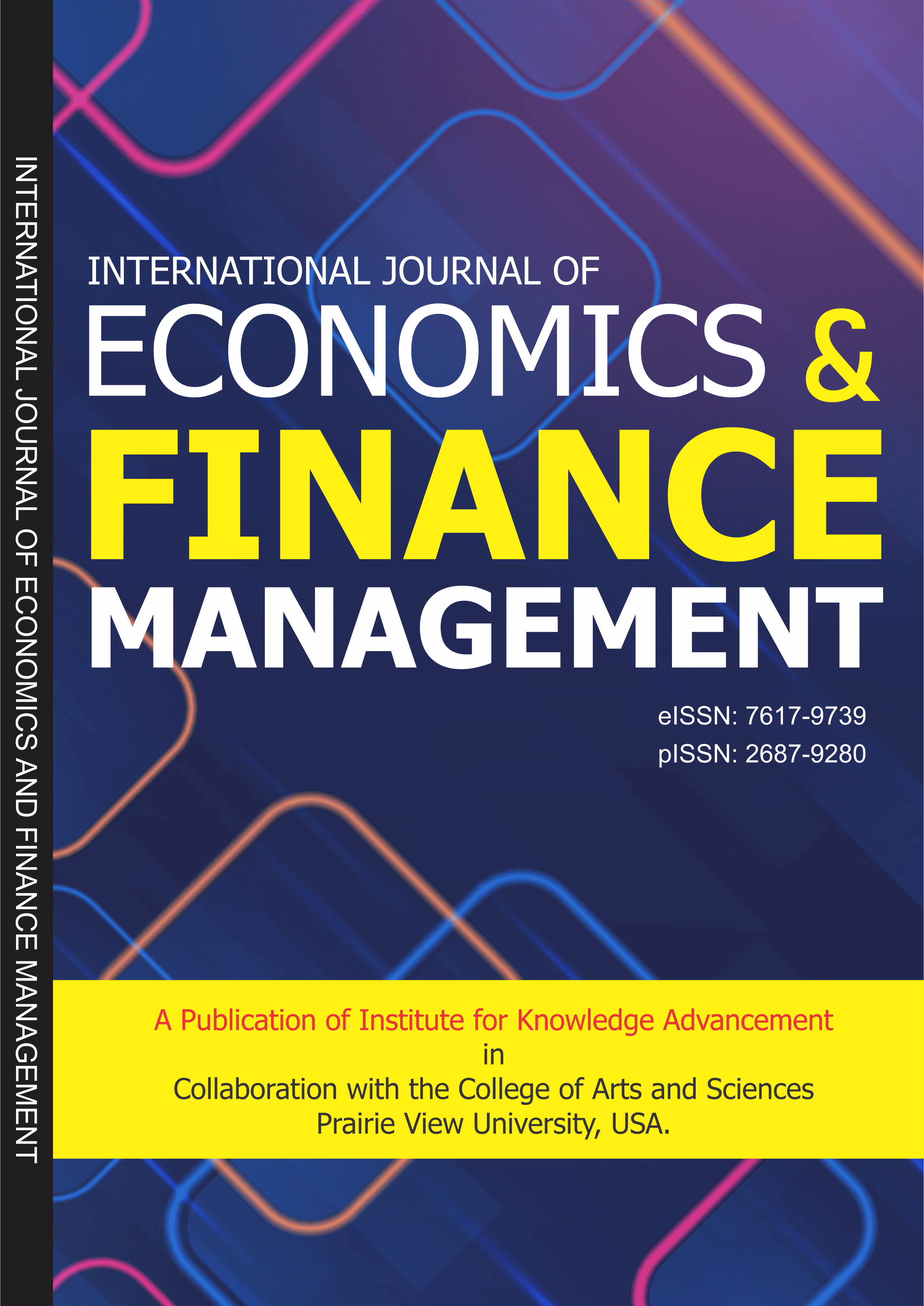INTERNATIONAL JOURNAL OF ECONOMICS AND FINANCE MANAGEMENT (IJEFM)
The Impact of Corporate ESG Information Quality on Audit Quality: An Empirical Study
E-ISSN: 7617-9739
P-ISSN: 2687-9280
DOI: https://iigdpublishers.com/article/675
This study empirically examines the relationship between ESG information quality and audit quality using data from A-share listed companies in China from 2013 to 2023. The findings indicate that companies with higher ESG ratings tend to exhibit lower levels of earnings manipulation and higher audit quality. In terms of control variables, higher debt levels, corporate loss status, and a greater proportion of independent directors negatively impact audit quality. To ensure the robustness and stability of the results, this study employs fixed-effects models, lagged treatment, and instrumental variable methods (2SLS), with consistent conclusions. Therefore, strengthening ESG disclosure standards can not only enhance a company's market image and social responsibility but also indirectly improve external audit quality, promoting the healthy development of capital markets.
Xie Weiyu, Wu Hongman & Lin Qijia
Dong, P., Tian, G., & Yan, Q. (2007). The relationship between non-audit services and audit quality: An empirical study. Audit Research, 05, 42–49.
Jiang, Y., Chen, W., & Cheng, J. (2024). ESG performance, corporate transparency, and audit quality. Scientific Decision, 09, 51–65.
Liu, Z. (2024). ESG performance and corporate value: Evidence from companies listed on the ChiNext board. Modern Marketing (Late Issue), 09, 119–121.
Liu, Z., Ye, C., Xie, Z., et al. (2023). The impact of ESG ratings on corporate value: An empirical study. China Certified Public Accountant, 03, 24–30.
Mei, H., & Xiao, J. (2024). ESG performance and its impact on corporate operating risk: Evidence from A-share listed companies. Guizhou Social Sciences, 07, 129–138.
